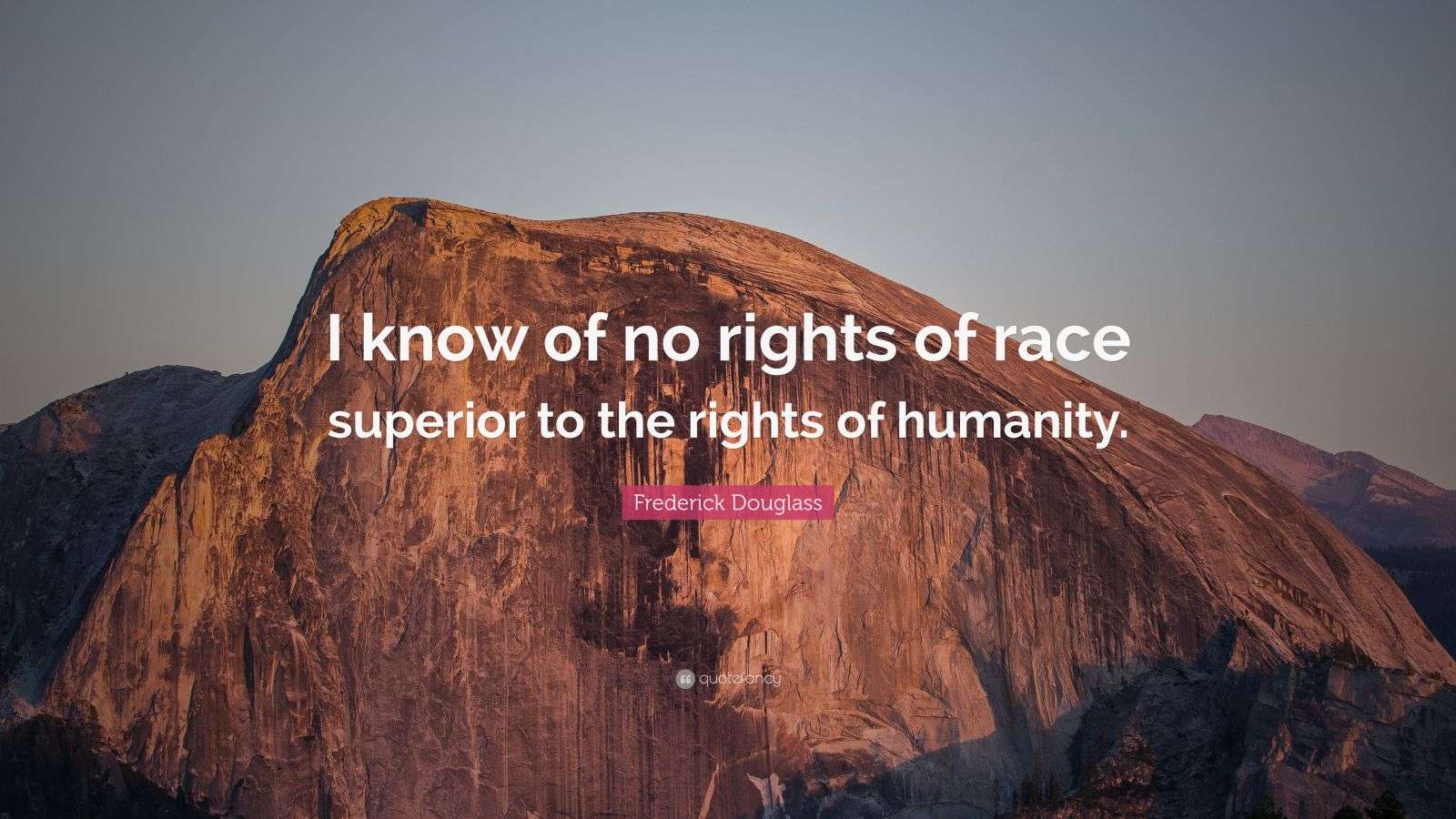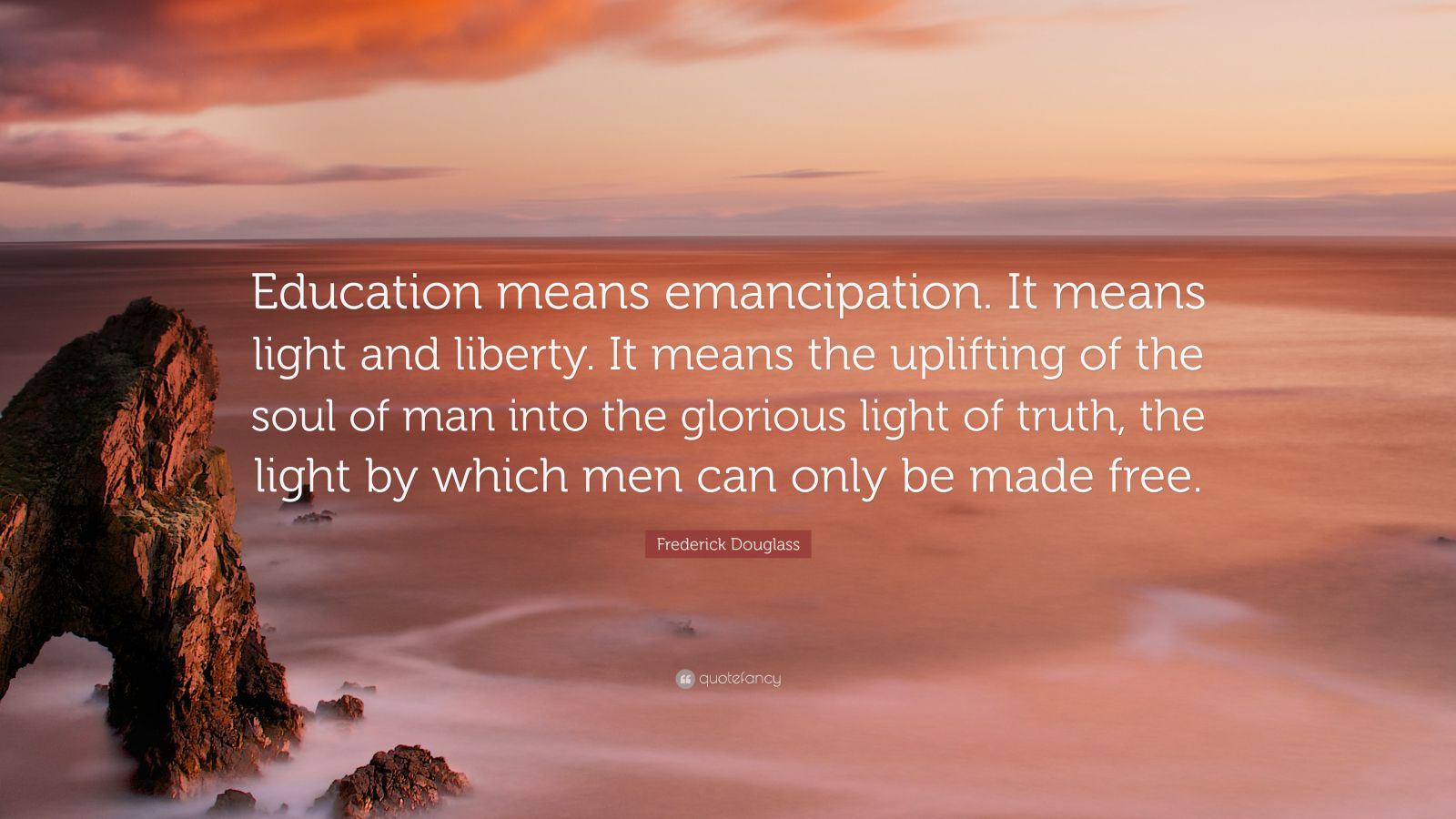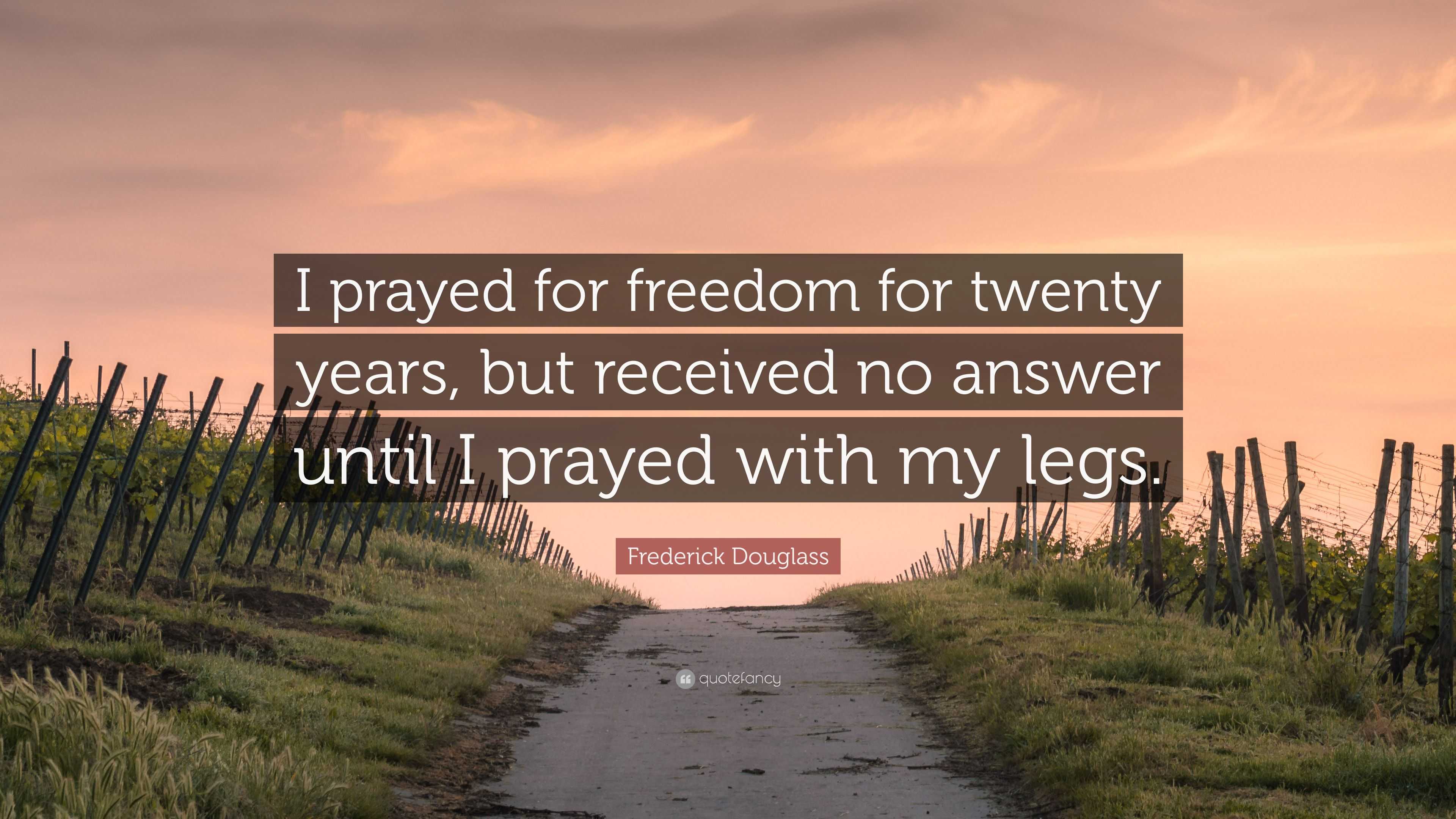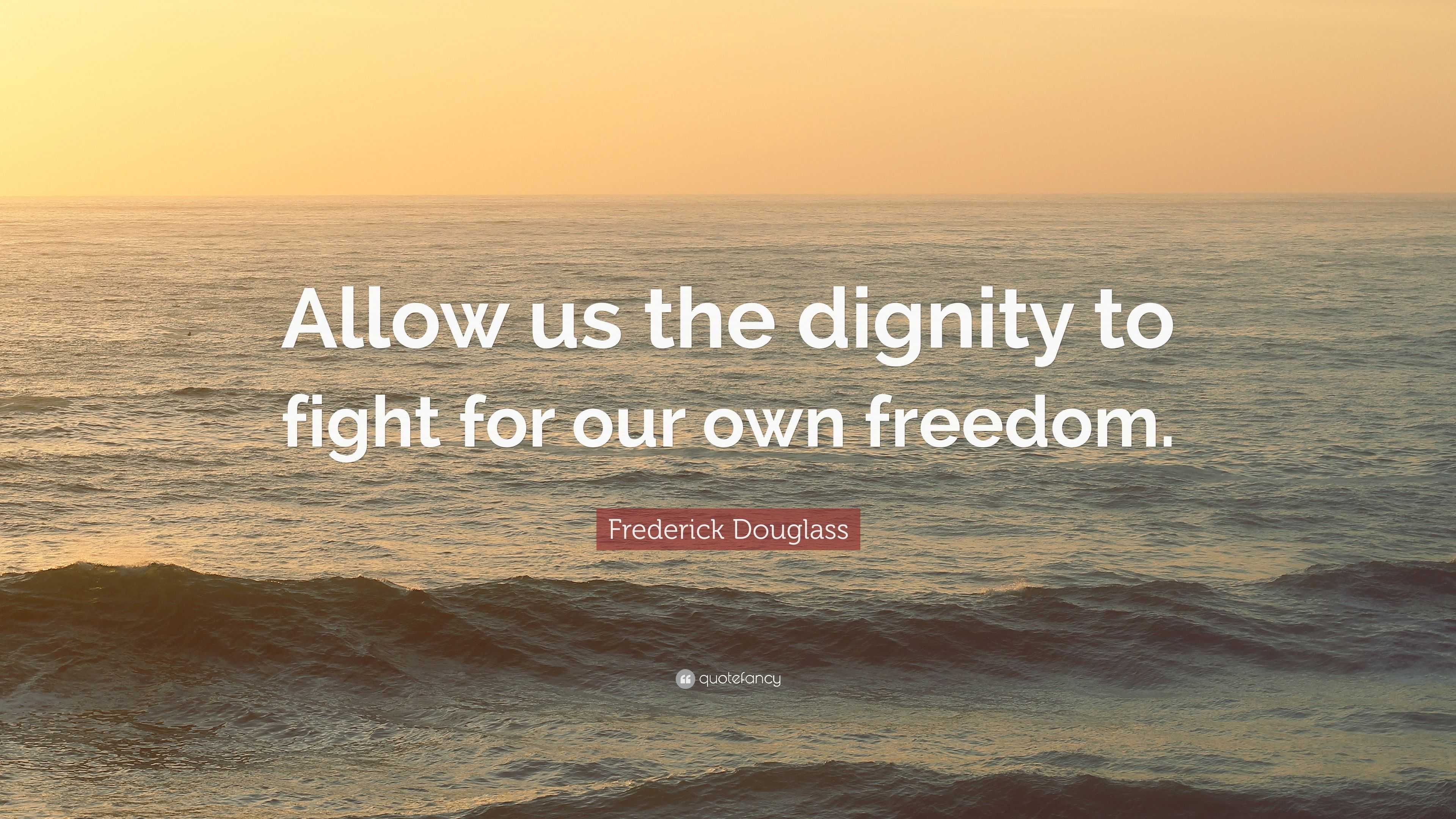

The two became friends and with Garrison’s support, Douglass became one of the most sought-after speakers on the abolitionist circuit, not only for his searing testimony but his powerful oratory. Douglass returned to the United States after supporters negotiated a payment for his freedom.(Credit: Bettmann Archives/Getty Images) The authoritative voice of AbolitionĪfter speaking at an anti-slavery meeting in 1841, Douglass met William Lloyd Garrison, one of the leading proponents calling for an immediate end to slavery. He fled to England after his published autobiography brought him to national attention, raising the risk that his former master would try to reclaim his escaped slave. READ MORE: How Frederick Douglass Escaped Slaveryįrederick Douglass addressing an audience in London in 1846. The Douglasses made a commitment to eradicating the evil of slavery.
#Frederick douglass freedom quotes free#
He married Anna Murray, a free woman of color who he had met and fallen in love with while in bondage in Baltimore. He continued on to New York and ultimately, New Bedford, Massachusetts, where he settled, a free man. In September of 1838 Douglass, disguised as a sailor and with borrowed free papers, managed to board a train to Havre de Grace, Maryland. It recalled the departed self-confidence, and inspired me again with a determination to be free.” Covey, tempered, never mentioned the encounter, but he also never laid hands on him again.Īs for Douglass, he called the battle with Covey “the turning point” in his life as an enslaved person: “It rekindled the few expiring embers of freedom, and revived within me my own sense of manhood. Covey mercilessly beat and abused the teenager until one day Douglass decided to fight back, knocking Covey to the ground. In an effort to break his spirit, Thomas loaned Douglass to Edward Covey, a sadistic local slave master with a reputation for cruelty. In the early 1830s, Douglass was shipped to the plantation of Hugh’s brother Thomas. As he observed: “Some know the value of education by having it.

He defied the law in not only learning to read and write, but in teaching other enslaved people to do so. Over time Douglass surreptitiously continued to teach himself to read and write, all the while strengthening his resolve to escape the confines of slavery. Auld taught Douglass the alphabet, unlocking the gateway to education-which he would extol the rest of his life.
#Frederick douglass freedom quotes how to#
In defiance of the codes that explicitly forbade teaching enslaved people how to read, Mrs.

(Credit: James Lawler Duggan/MCT via Getty Images) Education, abuse and escapeīorn in Maryland in 1818, Douglass, like many enslaved children, was separated from his mother at birth he resided with his loving maternal grandmother until he turned seven.Īt the age of eight, he became a servant in the home of Hugh Auld in Baltimore.

READ MORE: Frederick Douglass's Emotional Meeting with the Man Who Enslaved HimĪ statue of Frederick Douglass on display in the U.S. Underpinning it all was his relentless process of self-education-a theme that runs throughout Douglass’s life story. He also published an abolitionist newspaper for 16 years.supported the Underground Railroad by which enslaved people escaped north.became the first African American to receive a vote for President of the United States during roll call at the 1888 Republican National Convention.and even was known to play America’s national anthem on the violin. Not once, but continually and for the good of the nation, he argued, we must bring the “thunder.”ĭouglass’s extraordinary life and legacy can be understood best through his autobiographies and his countless articles and speeches. Indeed, Douglass knew, as he argued so ardently in his famed 1852 July Fourth speech, that for democracy to thrive, the nation’s conscience must be roused, its propriety startled and its hypocrisy exposed. And he knew it after Emancipation, when he continued to battle for equal rights under the law. He knew it when he lobbied relentlessly to abolish slavery. Eyerman/The LIFE Picture Collection/Getty Images) He wanted to rouse the nation's conscience-and expose its hypocrisyĭouglass’s voluminous writings and speeches reveal a man who believed fiercely in the ideals on which America was founded, but understood-with the scars to prove it-that democracy would never be a destination of comfort and repose, but a journey of ongoing self-criticism and struggle. Framed daguerreotype portrait of abolitionist Frederick Douglass.


 0 kommentar(er)
0 kommentar(er)
